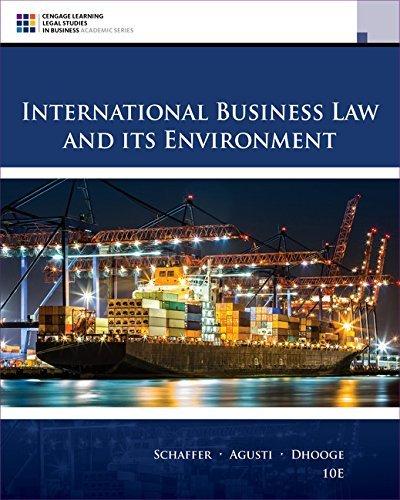Since 1963, the European Economic Community (EEC) had negotiated tariff rates with the developing countries that export
Question:
1. What is a tariff concession?
2. What is a tariff binding? What was the EEC's bound rate?
3. What actions did the EEEC take that violated its tariff concessions?
4. Why is it important that countries maintain their tariff commitments? If not for tariff commitments, what do you think the impact would be on foreign banana exporters or on exporters in any industry?
5. What is the legal basis for Latin America's objections?
Fantastic news! We've Found the answer you've been seeking!
Step by Step Answer:
Related Book For 

International Business Law And Its Environment
ISBN: 9781305972599
10th Edition
Authors: Richard Schaffer, Filiberto Agusti, Lucien J. Dhooge
Question Posted:





